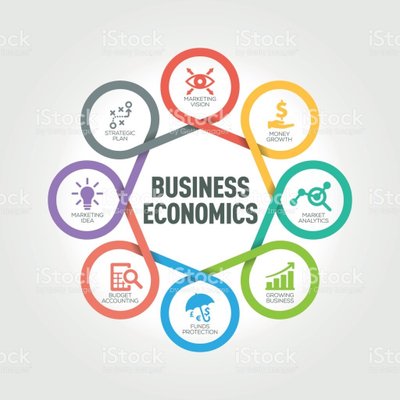Key Challenges Facing Business and Economics in the Post-COVID Era
Wiki Article
Service and Economics 101: Important Knowledge for Aiming Leaders
In today's rapidly progressing business landscape, striving leaders have to grow a comprehensive understanding of basic financial principles and calculated structures. Grasping principles such as supply and demand, market frameworks, and competition is not merely scholastic; these elements are essential fit reliable decision-making and fostering advancement. Financial proficiency-- specifically in cash money flow management-- offers as a cornerstone for lasting development. As we check out these important topics, it comes to be evident that the intersection of company acumen and economic understanding is crucial for future leaders to not just thrive yet make it through in their undertakings. What ramifications does this have for tactical management?Comprehending Supply and Need
Supply and demand are essential concepts that constantly underpin the auto mechanics of any kind of market economic climate. The partnership between these two pressures establishes the cost of solutions and goods as well as their accessibility in the marketplace. Supply describes the amount of a product that manufacturers are able and ready to cost various price degrees, while demand mirrors the quantity that customers are eager and able to acquire.When demand enhances without a matching surge in supply, rates tend to increase, signaling producers to increase result. Conversely, if supply outstrips need, costs may fall, prompting producers to minimize outcome. This vibrant interplay assists to attain market equilibrium, where the quantity supplied matches the quantity demanded at a particular cost factor.

Exploring Market Frameworks
Market frameworks define the affordable atmosphere in which organizations run, significantly affecting their pricing strategies, output degrees, and total productivity. Understanding these frameworks is important for aspiring leaders, as they shape company choices and market dynamics.There are four main types of market structures: best competition, monopolistic competition, oligopoly, and syndicate. In a flawlessly open market, various firms offer the same items, causing price-taking actions. Monopolistic competition attributes several companies selling separated products, permitting for some rates power. Oligopolies contain a couple of dominant companies that can affect market value, frequently resulting in strategic communications and competitive habits. Lastly, syndicates exist when a single firm controls the market, leading to the highest degree of rates power and prospective market ineffectiveness.
Each market framework provides special obstacles and opportunities for organizations. Leaders need to recognize these nuances to effectively place their organizations, establish competitive techniques, and react to market adjustments. By comprehending the implications of numerous market frameworks, aspiring leaders can make enlightened decisions that drive their businesses toward sustainable success and growth in an ever-evolving financial landscape.
Financial Principles for Leaders
Reliable management in company necessitates a solid understanding of monetary concepts, as they underpin strategic decision-making and resource allotment. Leaders have to realize key ideas such as capital management, earnings evaluation, and economic forecasting. These aspects are crucial in examining an organization's monetary health and wellness and assisting its future direction.Capital monitoring is especially essential; it guarantees that the company maintains enough liquidity to fulfill its obligations while seeking growth possibilities. Assessing success permits leaders to recognize which product and services yield the greatest returns, making it possible for enlightened financial investment choices. Furthermore, economic forecasting aids prepare for future revenues and costs, helping with even more exact budgeting and resource allowance.
In addition, comprehending economic declarations-- such as balance sheets, revenue declarations, and capital statements-- furnishes leaders with the insights needed to make informed selections. This expertise cultivates accountability and transparency, improving stakeholder trust fund.
In today's vibrant organization setting, leaders must be experienced at interpreting monetary information to react swiftly to market adjustments. Inevitably, a solid grasp of financial principles equips leaders to drive their organizations toward lasting success while efficiently managing resources and threats.
The Function of Competition
Recognizing the function of competition is necessary for any company aiming to flourish in a saturated market. Competitors drives advancement and effectiveness, engaging companies to boost their services and items consistently.Moreover, competitors can bring about much better rates strategies. As firms try market share, they are incentivized to provide competitive rates, profiting customers while tough services to manage expenses successfully. This dynamic fosters a culture of regular improvement, pushing organizations to enhance procedures and boost worth recommendations.
Furthermore, competition can stimulate market development by motivating brand-new participants. New organizations commonly present fresh ideas and approaches, even more improving the general market landscape. Firms should likewise be vigilant; excessive competitors can lead to market saturation, minimizing success for all gamers included.
Ultimately, understanding and navigating competitors is essential for leaders. By identifying its diverse role, aspiring leaders can make educated choices that place their companies for long-lasting success in look at this web-site an ever-evolving marketplace.
Strategic Decision-Making
In the world of organization, calculated decision-making is essential to adapting and achieving long-term objectives to transforming scenarios. This process involves examining various options and selecting the most reliable strategy that aligns with the company's vision and objectives. Effective strategic decision-making calls for a detailed understanding of both outside and interior atmospheres, including market patterns, affordable characteristics, and business capacities.
Key elements of tactical decision-making include information analysis, stakeholder engagement, and risk analysis. Leaders need to gather relevant information, evaluate it seriously, and projection prospective outcomes. Involving stakeholders fosters partnership and ensures that varied perspectives are taken into consideration, enhancing the top quality of choices made Clicking Here - Business and Economics. Additionally, examining risks linked with each alternate allows leaders to prepare for challenges and establish backup plans.
Ultimately, effective calculated decision-making encourages companies to navigate complexities, utilize possibilities, and respond proactively to threats. By cultivating a culture that values notified decision-making, organizations place themselves to innovate and maintain an one-upmanship in an ever-evolving organization landscape. Aspiring leaders need to sharpen these skills, as their capability to make sound critical choices will considerably affect their companies' success and sustainability.

Verdict
Comprehending the duty of competitors additional boosts strategic thinking, enabling leaders to browse complicated market characteristics. Eventually, this fundamental understanding equips future leaders to introduce and align organizational methods with evolving market conditions, leading the means for continual success and success.Recognizing these concepts is important for striving company leaders, as they develop the foundation for reliable decision-making in prices, resource appropriation, and market technique. Understanding supply and need equips leaders to navigate the complexities of market variations and consumer actions.
Monopolies exist when a single firm controls the market, resulting in the highest level of prices power and possible market inefficiencies.
By realizing the ramifications of numerous market frameworks, aiming learn this here now leaders can make informed decisions that drive their services towards sustainable success and growth in an ever-evolving economic landscape.
Recognizing the function of competition further enhances critical thinking, making it possible for leaders to browse complex market characteristics.
Report this wiki page